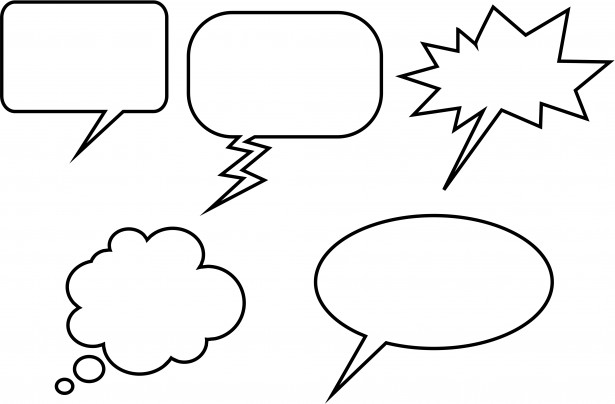I originally come from Spain, a land where dialects are almost as important as the actual official national language. These are taught in public schools, are used in public events, on TV and other media. They are revered as part of our cultural heritage, and as such, the authorities invest time and money in having people remember them, study and practice them daily, achieving at the end of the day the main goal: for them to be a normal part of society, not a luxury or a rarity.
In Germany, where I live, dialects have a different connotation. Perhaps not everywhere – Bavarians love and gladly preserve their own dialect, and it is very likely being to be spoken in many parts of Munich these days, as the Oktoberfest goes moves into its second week. But in Rheinland, the area where I live, Kölsch, the regional dialect of Cologne, is nowadays exclusively used in Carnival festivities and in traditional folk songs.
People no longer use it to communicate as a general rule. And even if that is something that German students like me should feel thankful for, since it can really be a nightmare to understand for non-fluent German speakers (and even fluent ones), I can’t help feeling sorrowful, as well. Its fate seems linked to that of extinct languages such as Latin, with practically no speakers and only remembered among the general public in popular songs.
That being said, it is still a better fate than to be completely forgotten. Kölsch people love their Kölsch dialect, and they sing it with all their hearts whenever the opportunity arises. Yesterday I got a chance to see it with my very own eyes when a band started playing folk songs in a brewery. They also gave us booklets so that we could read the text and sing along. For me, thought, it turned into an actual deciphering exercise: I read the text aloud and tried to understand the meaning of the words, comparing them to the German language. For a language lover such as myself, it was an immensely enjoyable experience, and hence, I decided to share it with you.
Here are the lyrics of a Kölsch song by the local band Höhner:
Blootwoosch, kölsch un e lecker mädche!
Dä Pitter, dä wor eines Dachs plötzlich fott.
Erus us Kölle op nem urahle Pott.
Sing Mamm, die krät ald richtich dr Zidder,
doch dä Ühm meinte nur: “Kein Angs, dä kütt widder”!
Erus us Kölle op nem urahle Pott.
Sing Mamm, die krät ald richtich dr Zidder,
doch dä Ühm meinte nur: “Kein Angs, dä kütt widder”!
Refrain:
Blootwoosch, Kölsch un e lecker Mädche,
dat bruch ene Kölsche, öm jlöcklich zo sin.
Blootwoosch, Kölsch un e lecker Mädche,
dat fings do nur he, en Kölle am Rhing.
Blootwoosch, Kölsch un e lecker Mädche,
dat bruch ene Kölsche, öm jlöcklich zo sin.
Blootwoosch, Kölsch un e lecker Mädche,
dat fings do nur he, en Kölle am Rhing.
Hück wor’e he, un morje ald do,
doch dann wod däm Pitter no Monate klor.
Im dät jet fähle, dat sat im sie Hätz,
do es hä janz flöck Richtung Kölle jewätz.
doch dann wod däm Pitter no Monate klor.
Im dät jet fähle, dat sat im sie Hätz,
do es hä janz flöck Richtung Kölle jewätz.
Refrain:
Blootwoosch, Kölsch un e lecker Mädche…
Blootwoosch, Kölsch un e lecker Mädche…
Doheim en Kölle, wor et ehts, wat hä sat:
Jetz e Kölsch un en Flönz, ich han lang drop jewat.
Un in Nippes, do hät hä jet kennejeliert.
Nächste Woch ald wed Huhzick gefiert.
Jetz e Kölsch un en Flönz, ich han lang drop jewat.
Un in Nippes, do hät hä jet kennejeliert.
Nächste Woch ald wed Huhzick gefiert.
Refrain:
Blootwoosch, Kölsch un e lecker Mädche…
Blootwoosch, Kölsch un e lecker Mädche…
And here is the translation in German:
Blutwurst, Kölsch und ein leckeres Mädchen!
Der Peter, der war eines Tages plötzlich weg.
Raus aus Köln auf einem uralten Schiff.
Seine Mutter zitterte schon richtig,
doch der Onkel sagte nur: Keine Angst, der kommt wieder!
Raus aus Köln auf einem uralten Schiff.
Seine Mutter zitterte schon richtig,
doch der Onkel sagte nur: Keine Angst, der kommt wieder!
Refrain:
Blutwurst, Kölsch und ein leckeres Mädchen,
das braucht ein Kölner um glücklich zu sein,
Blutwurst, Kölsch und ein leckeres Mädchen,
das findest du nur hier, in Köln am Rhein.
Blutwurst, Kölsch und ein leckeres Mädchen,
das braucht ein Kölner um glücklich zu sein,
Blutwurst, Kölsch und ein leckeres Mädchen,
das findest du nur hier, in Köln am Rhein.
Heute war er hier, und morgen schon da,
doch dann wurde dem Peter nach Monaten klar,
ihm fehlte etwas, das sagte ihm sein Herz,
da ist er ganz schnell Richtung Köln gewetzt.
doch dann wurde dem Peter nach Monaten klar,
ihm fehlte etwas, das sagte ihm sein Herz,
da ist er ganz schnell Richtung Köln gewetzt.
Refrain
Zuhause in Köln war das erste was er sagt:
Jetzt ein Kölsch und eine Blutwurst, ich habe lange drauf gewartet.
Auf der Kirmes da hat er eine kennengelernt,
nächste Woche schon wird Hochzeit gefeiert.
Jetzt ein Kölsch und eine Blutwurst, ich habe lange drauf gewartet.
Auf der Kirmes da hat er eine kennengelernt,
nächste Woche schon wird Hochzeit gefeiert.
Refrain
You think you can sing it? Here is the actual song, so that you can sing along with the lyrics. Try it, seriously! It is a lot of fun!


Recent Comments